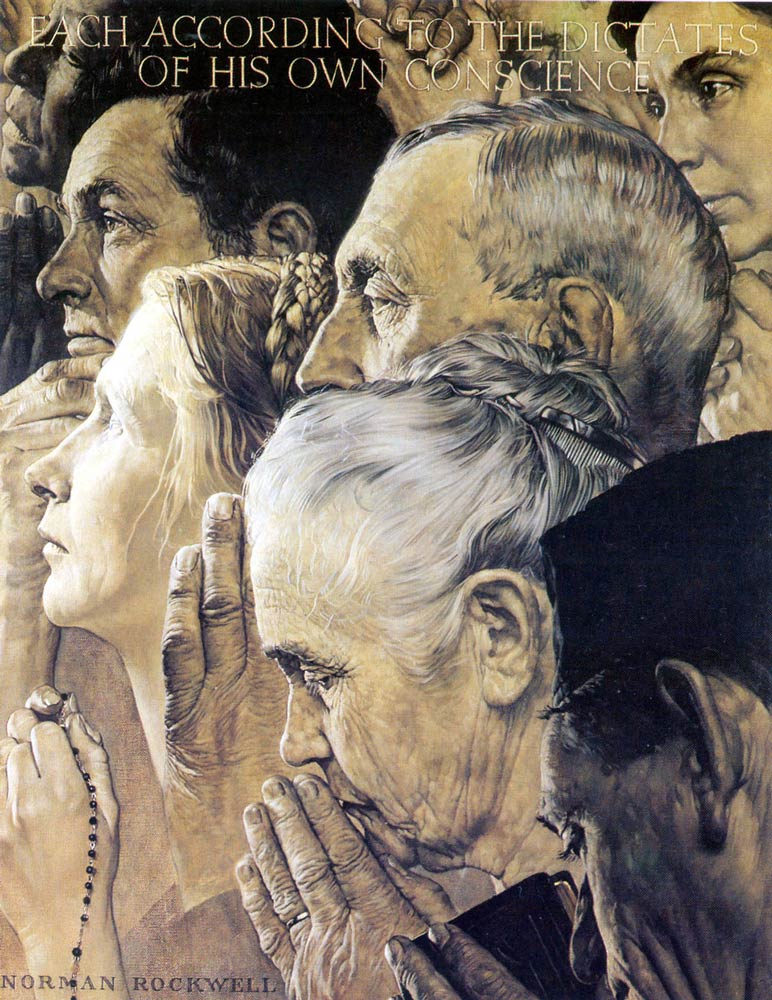The following Cornerstone written testimony was delivered to the Senate Judiciary Committee Tuesday, May 11, 2021
This bill has two purposes. First, the bill will protect churches from being treated worse than other essential services in states of emergency. For example, the bill would prohibit churches from being totally closed by the government when services such as grocery stores and hospitals are still operating. Importantly, this rule will not prohibit the state from enacting neutral capacity restrictions, mask mandates, or other kinds of rules that affect churches. Although any restriction that substantially burdens religious exercise could be subject to a Mack-type challenge, that is already the law in New Hampshire under the Mack decision.
This first point is the true innovation of the bill. But, ironically, a second goal of the bill was the subject of much of today’s debate. HB 542 also codifies the result of the New Hampshire Supreme Court’s Mack decision in state statute. In light of the controversy in today’s hearing, I will focus the remainder of my written testimony on this topic.
If there is any doubt about what Mack actually held, I refer you to page 19 of that decision as linked below. [1] There, the Court explained the holding simply: “[U]nder Part I, Article 5, once an individual establishes that… government action substantially burdens his or her sincere religious practice… the burden shifts to the State to show both that the government action is necessary to achieve a compelling government interest, and is narrowly tailored to meet that end.” State v. Mack, 2020 N.H. LEXIS 206, *42. Compare this to the language in 546-C:2, I of the proposed Religious Liberty Act. It is exactly the same protection.
As you have now seen, opponents of general religious liberty protections argue that they will permit invidious discrimination. They conjure up imagined scenarios in which Christian restaurants put up signs excluding gay customers, or Christian commercial landlords evict gay tenants.
But the example of New Hampshire already shows us that these accusations ring false. Mack has been the law in New Hampshire for five months. In that time, how many Christian restaurant owners or landlords have discriminated against LGBT people under the guise of religious liberty? As far the opponents of this bill have shown you, the answer is zero. In the bright light of Mack, we can see that this caricature of Christians is a phantom.
Real Christians I know desire, like Jesus, to associate with and befriend those with whom they disagree. Overwhelmingly, they do not wish to fire people with different values from for-profit businesses or deny them housing. They desire only for the law to respect religious pluralism and individual liberty.
But opposition to religious liberty is not truly grounded in fear of the nightmare scenarios you have been presented with. The reality is that a growing number of progressive organizations believe that Christian churches, schools, and other religious organizations must be compelled to hire people who do not accept their beliefs and practices—effectively dismantling all such organizations. They also aim for Christians like Elaine Huguenin, a New Mexico wedding photographer, to be legally forced to attend religious ceremonies with which they disagree. General religious liberty protections are contentious today—not because they permit invidious discrimination—but because they prevent authoritarians from maliciously imposing their will upon their opponents.
In today’s hearing, critics of HB 542 suggested that corporations like Walmart might boycott New Hampshire over this bill. Of course, it’s no secret that corporations have been successfully weaponized by progressives as a political bludgeon. But as the example of Georgia has just shown us, state legislators must simply accept corporate disapproval as an inherent risk posed by any bill that progressive organizations might oppose. Otherwise, corporate threats will soon dictate policy on everything from election reform to the state budget. “Once you have paid him the Dane-geld, you never get rid of the Dane.”
On this specific bill, however, the threat of a corporate boycott is especially absurd. As explained above, our state Constitution already provides exactly the protections accorded in 546-C:2, I of HB 542. Opponents of HB 542 seem distressed only at the possible symbolic defeat of seeing these protections codified in state statute.
Finally, this bill is not based on any law or bill from Arizona. Those who suggest it is might be unaware that the “compelling interest” balancing test was the law everywhere in the United States, under federal constitutional law, prior to 1990. Since then, various states have attempted to return to this pre-1990 legal standard. Fortunately, under the Mack decision, New Hampshire already has.
As the New Hampshire Supreme Court said on page 21 of Mack, “[t]he compelling state interest balancing test has proven to be a workable standard in free exercise cases.” The balancing test in Mack, and this bill, is just that: a balancing test. It does not categorically nullify non-discrimination laws. On the contrary, it ensures that both religious liberty and the state’s interest in non-discrimination are accommodated. If America is to remain a pluralistic society, which respects minority and individual rights, then balancing tests of this kind must be upheld.
Thank you for your time; I would be happy to answer or discuss any further questions at the email address above.
Footnote:
[1] You can read the Mack decision here: https://law.justia.com/cases/new-hampshire/supreme-court/2020/2019-0171.html


